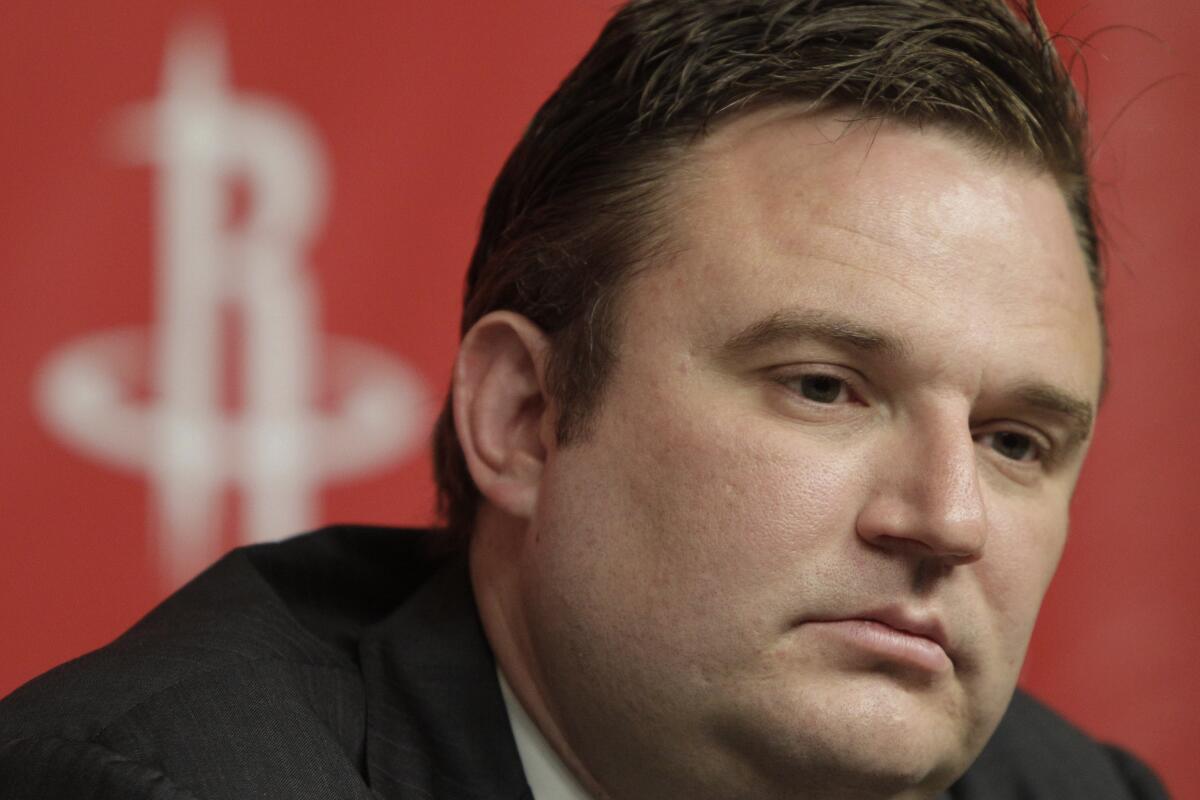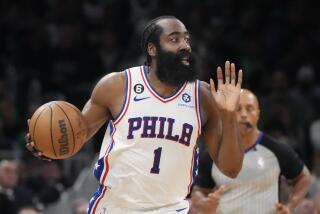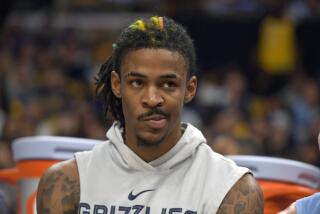Opinion: The NBA was staring down a China problem with or without Daryl Moreyâs tweet

The NBA really shouldâve seen its China problem coming from about 6,000 miles away.
Actually, it is almost surprising itâs taken this long. All the ingredients have just been sitting there, ready to mingle and combust: Take a personality-driven league that has, mostly for the better, allowed its stars to use their platform to speak passionately about the issues of the day; add in a concerted corporate strategy to break into a massive foreign market; and then consider said foreign market exists under the hyper-sensitive thumb of a regime the often abuses basic human rights.
It was only a matter of time before someone saying the right thing turned into someone saying the wrong thing.
On Friday, inevitability became reality, when Houston Rockets general manager Daryl Morey tweeted out his support for the pro-democracy Hong Kong protesters. What may have looked like a bare-minimum stand of social media solidarity quickly escalated into a potentially league-shaking business problem.
In China, where state-run media painted the protesters as violent and intolerable extremists, Moreyâs most recent tweet has been received as an impolitic and offensive political statement. The Chinese Basketball Assn., helmed by former Rockets legend Yao Ming, released a statement admonishing Moreyâs tweet. And Rockets games will no longer be broadcast by Chinese state TV or partner Tencent, who recently agreed to a $1.5-billion deal with the NBA to stream games in China.
The message is clear: criticize the regime and risk losing out on billions of potential revenue. In 2019, looking the other way at the regimeâs abuses is just the cost of doing business in China.
The NBA is not the lone multimedia organization going through fits-and-starts to tap into the massive Chinese market. Hollywood has been making inroads for years, with increasing efforts to both cater to the audience and to satisfy any potential Chinese censorship (one small, albeit telling, example: the removal of the Taiwanese flag from the jacket of Tom Cruiseâs âMaverickâ character in the upcoming âTop Gunâ sequel).
With the recent 70th anniversary of the Communist Party rule in China, The Times editorial board has explored how the country has changed. Yes, the economy has democratized. But the political system hasnât. If anything, dissenting in the country is more dangerous than ever. The result: American business must walk a tightrope as it attempts to tap the robust Chinese market without drawing the ire of those in charge. The NBA may have made its first slip. It certainly wonât be its last.
The Rockets faced enough heat that Morey â who has brought nothing but success in his tenure â was reportedly at risk of losing his job. He has since deleted his tweet and walked back his statements in a series of other tweets. And Rockets owner Tilman Fertitta has distanced the team entirely from Moreyâs tweet.
For its part, the NBA has made efforts to smooth relations with the country without completely throwing Morey under the bus, with spokesman Mike Bass releasing this statement:
But the league is attempting to spin this as nothing more than one manâs unrepresentative viewpoint (despite, you know, some pretty basic human rights at stake), with common ground being just a quick game to 21 away (or, more accurately, a presumably multimillion dollar deal to hold a series of preseason exhibition matches in Shanghai and Shenzen).
What would the NBA have done if Morey instead had focused his criticism on the treatment of Uighur Muslims in China, who have been subjected to a horrifying and blatantly objectionable âre-educationâ? Would the league again try to wave it off as one manâs idiosyncratic opinion? Would calling out oppression really cost Morey his job?
The NBA talks a big game about so-called basketball diplomacy. But it is still a business, not a nonprofit looking to spread democracy. Expecting the league to act more like the latter than the former is silly and naive. The league has tolerated â and even encouraged â those in positions similar to Moreyâs who use their platform to criticize Trump, but the deference shown to President Xi Jinping is a reminder of where the bottom line is.
At the end of the day, the language of âbuilding bridges through basketballâ isnât about solving geopolitical problems. Itâs about billion-dollar streaming deals and kids buying LeBron sneakers to wear on blacktop courts across every continent â citizens of Hong Kong be damned.
More to Read
A cure for the common opinion
Get thought-provoking perspectives with our weekly newsletter.
You may occasionally receive promotional content from the Los Angeles Times.











